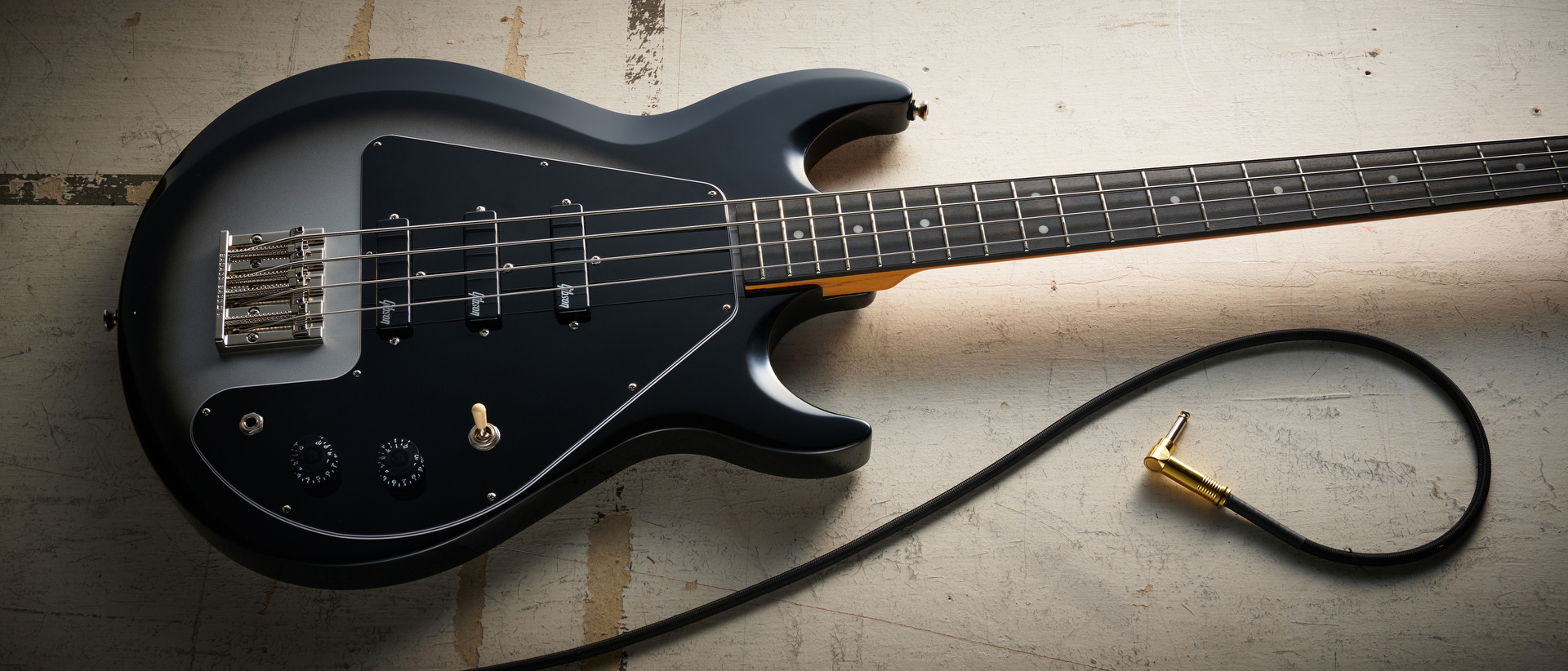How much is enough: is amassing a huge gear collection really good for your playing - or the planet?
Taking a closer look at the impact of cheap guitars and modern gear indulgence
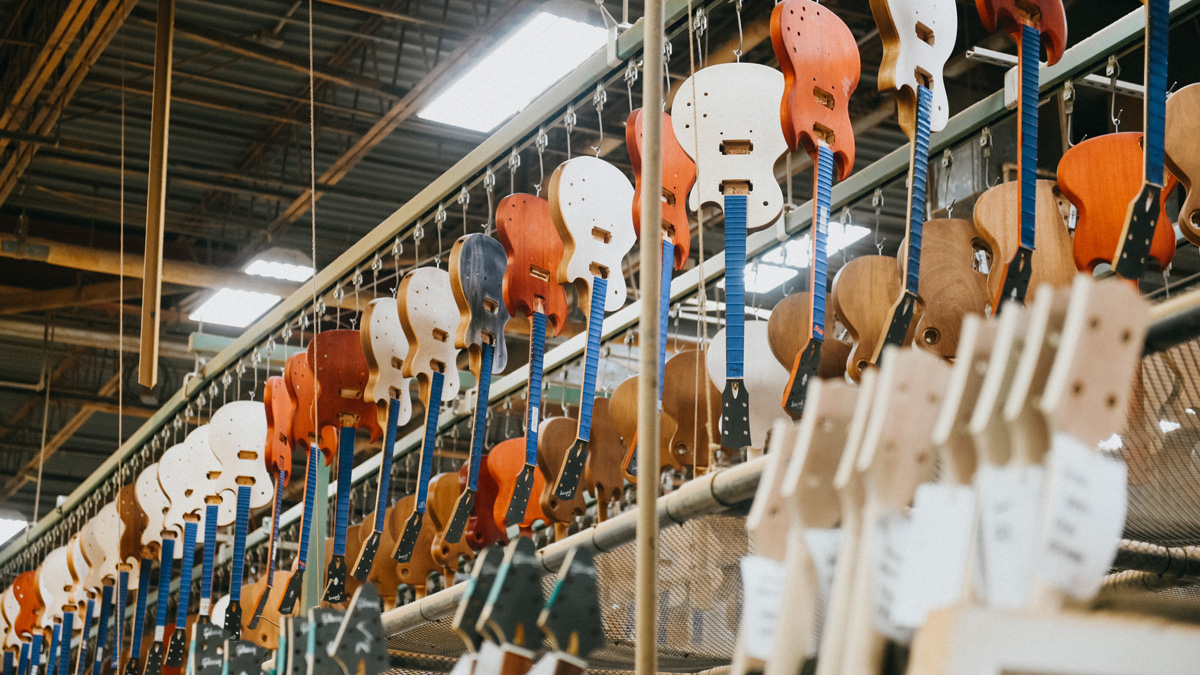
All the latest guitar news, interviews, lessons, reviews, deals and more, direct to your inbox!
You are now subscribed
Your newsletter sign-up was successful
Recently I read on this venerable guitar platform about the 600-strong instrument collection of Alain Johannes, the brilliant gun-for-hire and supporting cast member to the likes of Queens Of The Stone Age, PJ Harvey and Them Crooked Vultures. The number has stuck with me.
Johannes is an accomplished solo artist, a respected session pro and a frequent performer - a man who requires a range of tools. Nonetheless, I still risked dousing my keyboard in a coffee-based mouthwash when I read that figure.
I don’t begrudge Johannes his successes or his gear indulgences. My argument here is most certainly not with the individual, but the figure was something of a red flag and it made me question our consumption as an industry. This is one example among many in the professional world, but collections seem to be expanding at a rapid rate throughout the entire guitar community - from big names to bedroom players.
Among all music-makers, guitarists in particular are known for espousing the mythic bonds we create with our instruments, but our buying habits are telling a different story. Research suggests the average player now owns between seven and eight guitars (though the figures referenced here are, at best, anecdotal), meaning the guitarist with one good amp and electric is increasingly an anomaly.
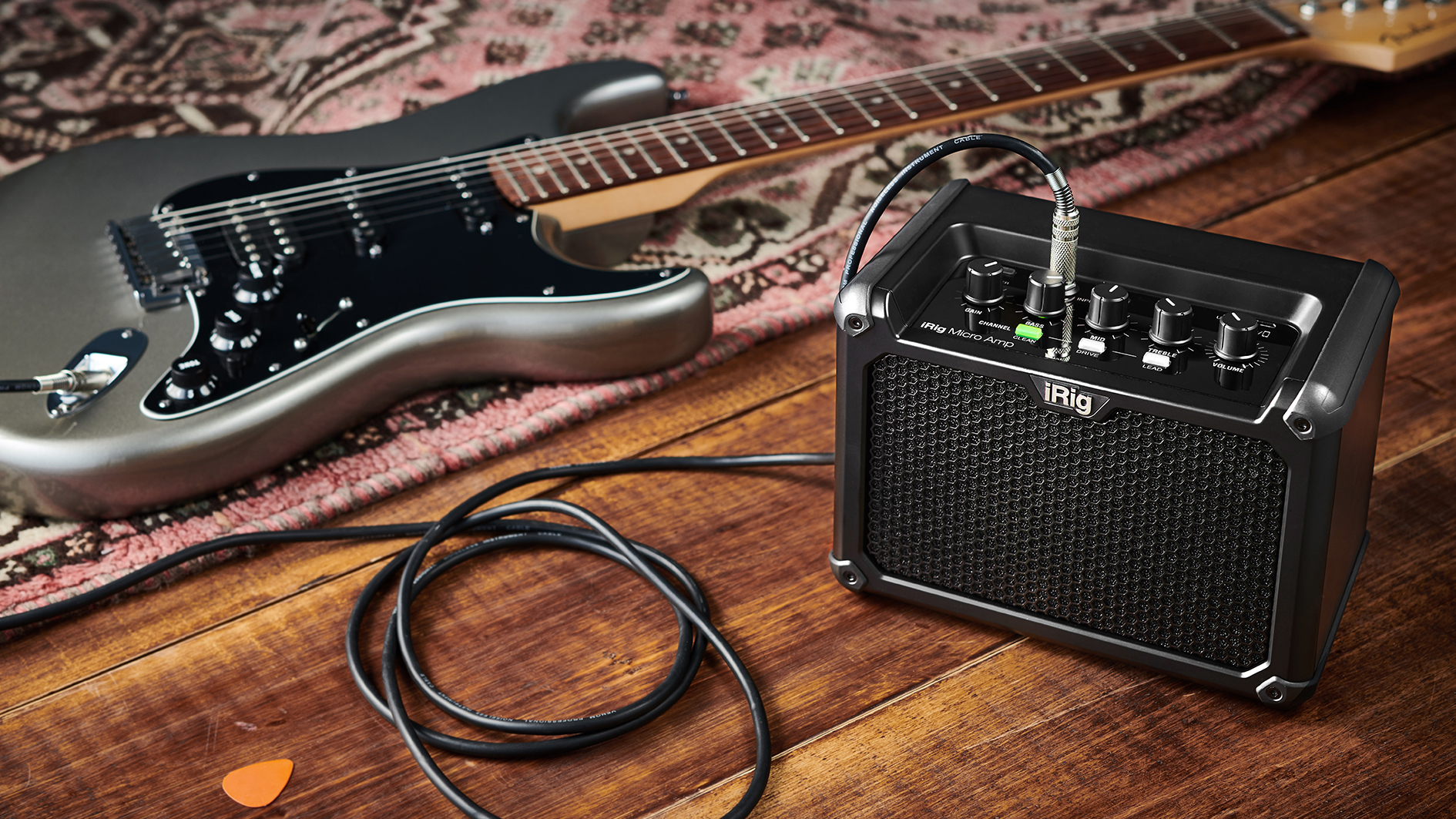
The relatively new perception of guitars as collectibles - and, following The Great Recession of 2008, as investments - plays a part in this story, but for most of us they are either a creative outlet, or a tool - not baseball cards or museum pieces. Even the cheaper production line models contain some level of craft, so should we be asking the question if guitars are, in fact, too affordable?
As ever, it starts with the economics - supply and demand. Efficiencies found in material choices, mass production techniques and foreign labour/facilities have led to a situation where many beginner instruments offer excellent build quality and value for money.
Supply has risen and prices have decreased, meaning we can buy better instruments at a lower real cost than ever before. This is, for the most part something to celebrate. Thanks capitalism, thanks economy! Why shouldn’t we all own loads of guitars?
All the latest guitar news, interviews, lessons, reviews, deals and more, direct to your inbox!
Well, whether you believe the ice caps are melting or that dinosaurs built the pyramids, global population growth nonetheless continues and we need to be more efficient in our consumption of the world’s finite resources. This goes for all aspects of our lives, but most crucially our hobbies and passions.
These are the areas, after all, where our consumption is the least essential, based on desires over needs, and yet due to their nature as an escape from the real world, hobbies are often where we’ll suffer our biggest blindspots and most resistance to change.
What other manufacturing industry has that kind of burn rate on such high value products?
So, leaving behind the pseudo-spiritualism regarding the missed tonal benefits of playing in instruments and those aforementioned mythic bonds, but might there be other issues with our consumption? IBISWorld notes the annual growth in guitar sales 2013-2018 was approximately 0.8%, pretty much inline with US population growth.
This seems reasonable at first. But then consider how many guitars are already out there (a 100% unverified estimate is 50-100 million, with approximately 2.5 million new instruments produced a year) and the fact that these products have been outliving their owners for decades now.
Add to this research by Fender in 2015 that showed that a half of all new guitars are brought by first-timers and just 10% of those players stick-it-out beyond a year. That’s a potential 45% of all new guitars produced, year-on-year, drifting off to lofts or basements, re-sale points or, if they’re lucky, landing in the hands of a motivated player.
Much of this aforementioned new gear is cheap, but also - compared to the entry-level gear of yore - highly playable and built to last. It’s not surprising that, as more enthusiastic players, we begin to amass collections of this stuff then, but what other manufacturing industry has that kind of burn rate on such high value products?
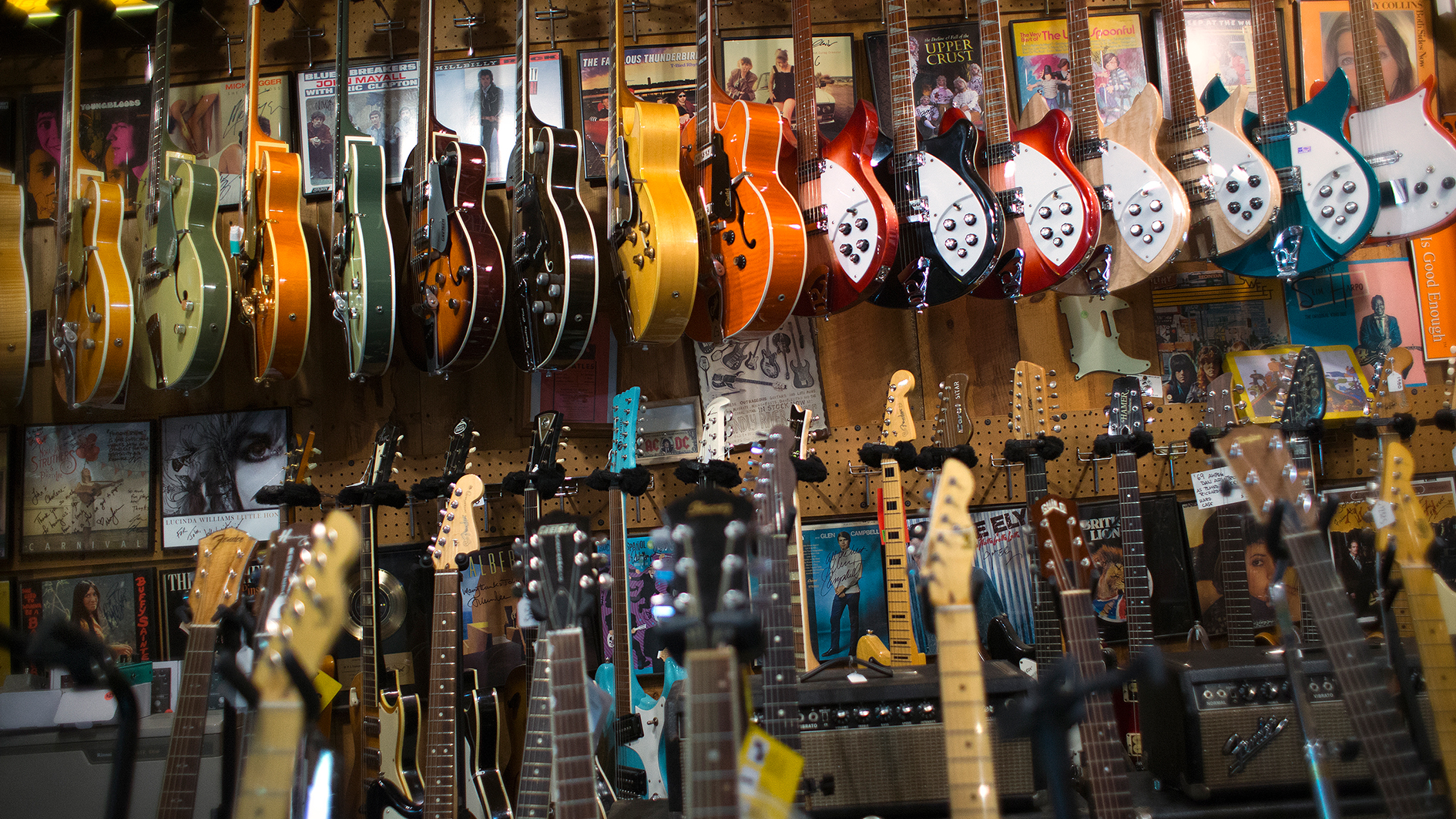
We all like to own more guitars. But after a point, it is not simply a waste of global resources, but also the time spent working away, paying off guitar number eight. Are the additional purchases we continue to make in the name of G.A.S. (Gear Acquisition Syndrome) making us as happy as our first few buys? Or is the happiness return decreasing with each new product you pick up?
When does the cost start to outweigh the emotional or creative benefit? Economists have recognized this phenomenon and, somewhat grandly, labelled it 'the law of diminishing marginal utility’, but most compulsive guitar buyers will recognize it as that sense of post-G.A.S. deflation. The sheen wears off before the new shiny-thing-that-will-definitely-solve-all-your-problems must be purchased to fill the gap.
So what can be done? Well, it starts at home, as they say. Those of us in the media could even examine our own impact - highlighting the mammoth collections of touring megastars (who need a guitar and a backup to cover each of their 18 tunings) is likely contributing to the sense that more is better. As is the yearly NAMM-frenzy and product coverage born of our collective thirst for the ‘new’.
There was a time when players just bought a Strat, Les Paul or Tele - not one of each, or even multiple variants
Instead perhaps we should promote more coverage of the second-hand finds and ways to maintain, mod and get the most from our existing instruments. It’s fair to say we’re open to suggestions here.
Consumers always have the most power, though. The market responds to demand, so we need to think in terms of our impact as individuals. The next time the bloating sensation of G.A.S. enters our consciousness, perhaps we should ask ourselves if we can achieve our aim in some other way.
Firstly, do we really need it? The answer to this question of need is, almost always, ‘no’, but then that’s not always the point when it comes to creativity.
Perhaps, instead, we should challenge ourselves to put our creative minds to use elsewhere, finding work-arounds. There was a time when players just bought a Strat, Les Paul or Tele - not one of each, or even multiple variants.
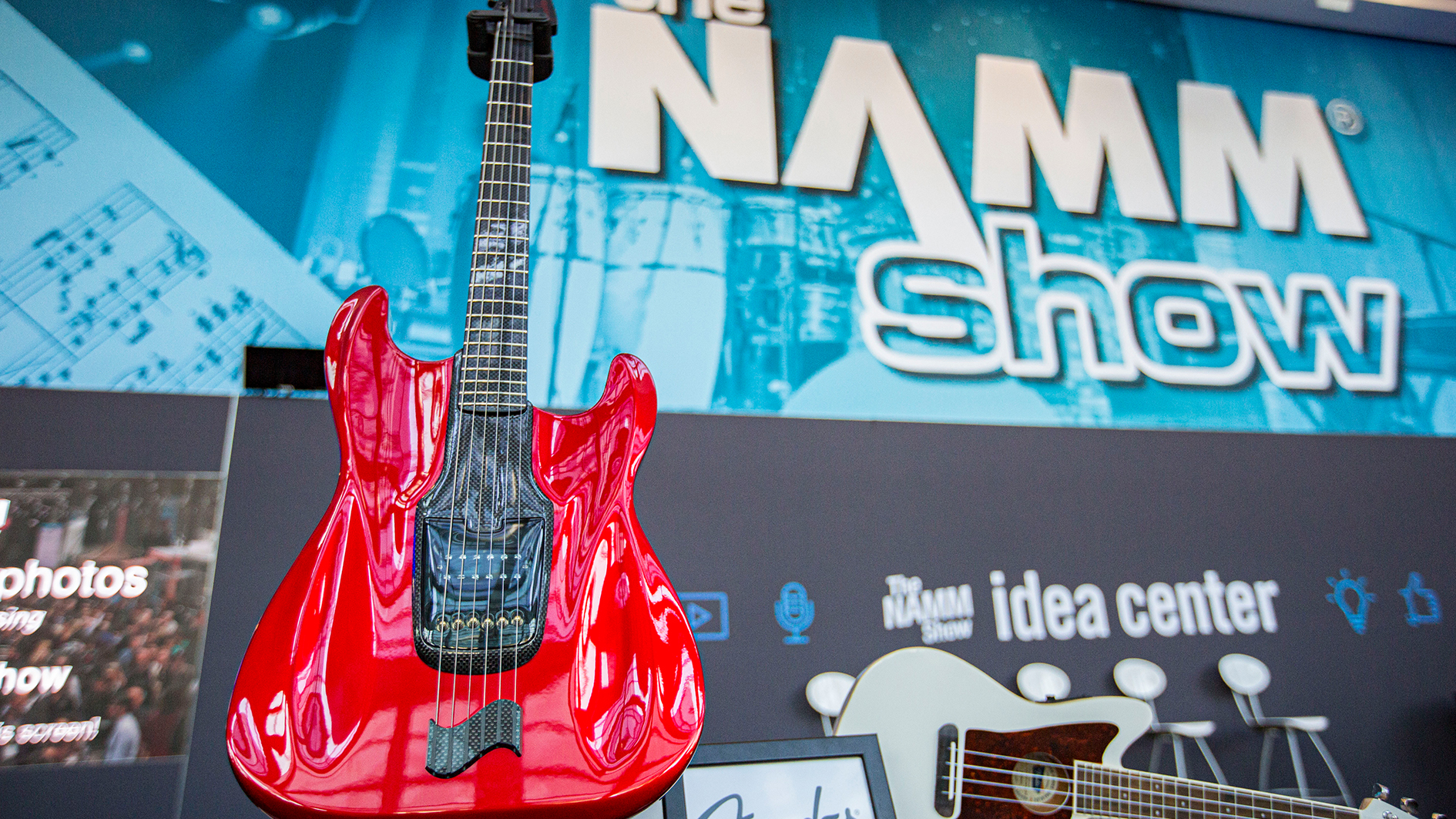
Indeed, easy customization and servicing was one of Fender’s early selling points. Will swapping pickups or getting a decent setup save you cash and give your faithful six-string a new lease of life? If not, can you borrow or trade gear? If we do, maybe we can slake our thirst without a box-fresh purchase.
Failing that, can you get it second-hand? Reverb.com, eBay and local trade sites are awash with good gear finds and salvage-state bargains - and don’t rule out the surviving bricks and mortar retailers. The joy of a good store’s curation and playing before you buy, without pressure, is significant. Buying new should be our last instinct, not our first.
If the market changes, the industry will, too. Imagine a point at which the big manufacturers decide to place more emphasis on upgrade packages, user servicing, and/or Apple-style refurbishment/recycling programs. These would allow brands to gain a slice of the resale market, while ensuring the quality of pre-owned gear in the process.
Each instrument purchase would be seen as a beginning of a long-running relationship with a firm, not a transactional pay-off. Fender’s response to the high drop-out rate of new players with its Fender Play platform has had notable success in helping new guitarists to stick it out, so now how about sessions that teach maintenance, mods and repairs to a mass audience, too?
The power to change that story lies with us, then, the consumers. How much is enough? Only you can decide.

Matt is Deputy Editor for GuitarWorld.com. Before that he spent 10 years as a freelance music journalist, interviewing artists for the likes of Total Guitar, Guitarist, Guitar World, MusicRadar, NME.com, DJ Mag and Electronic Sound. In 2020, he launched CreativeMoney.co.uk, which aims to share the ideas that make creative lifestyles more sustainable. He plays guitar, but should not be allowed near your delay pedals.
